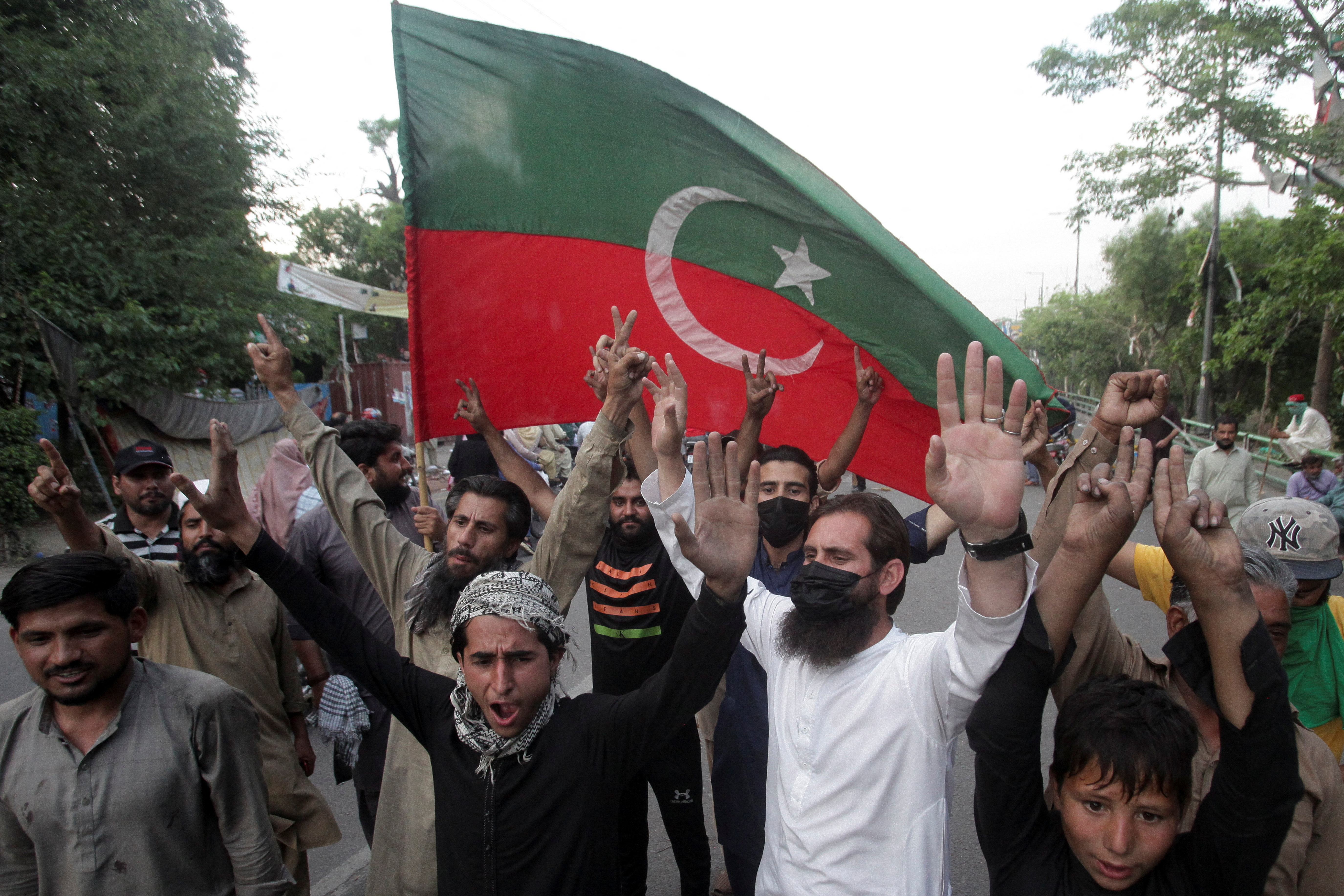Pakistan’s Supreme Court ruled on Thursday that former Prime Minister Imran Khan’s arrest was unlawful, two days after his detention on graft allegations triggered deadly violence, escalating his tussle with the powerful military.
The protests coincide with Pakistan’s worst economic crisis in decades, with record high inflation, anaemic growth and IMF funding delayed for months, prompting concerns that the country could default on its external payment obligations.
“The manner of execution of the arrest warrant issued by the
Chairman, National Accountability Bureau (NAB) … is invalid and unlawful,” the Supreme Court said in its order.
The reprieve for Khan, 70, comes as a setback for the military, which has ruled the South Asian nation for almost half its history through three coups, a day after it said the violence by Khan’s supporters who rampaged through army installations was “pre-planned” and ordered by his party leadership.
Khan, a cricket star-turned-politician who opponents say was brought to power through a rigged election in 2018 by the generals, has blamed the military for his ouster from office in April 2022.
He has also alleged that an attempt on his life in November was plotted by a top army general at the country’s Inter-Services Intelligence (ISI).
The army has denied allegations of bringing him to power, his ouster and of the assassination attempt.
Khan’s lawyer, Babar Awan,said the Supreme Courthad ruled that Khan was now under its custody and not under that of the NAB. The court said Khan would spend the night in the same police guest house as before in order to ensure his safety.
He will appear before Islamabad High Court at 11 a.m. (0600 GMT) on Friday.
‘WE WILL ARREST HIM AGAIN’
It was not immediately clear when he would be allowed to go home.
Undeterred by his ouster and the assassination attempt, Khan has led countrywide protest campaigns to pressure the government to call early elections scheduled for later this year.
The graft case is one of more than 100 registered against him in which, if convicted, he could face a ban from holding public office.
“We will arrest him again,” said Interior Minister Rana Sanaullah.
Khan, who was accused in the graft case of land fraud worth up to seven billion rupees ($24.70 million), denies any wrongdoing.
After Khan’s arrest, hundreds of protesters blocked highways, main entry and exit routes to all major cities, attacking and burning state buildings, police and public vehicles and rampaged through army installations.
Nearly 2,000 people were arrested and at least eight killed, prompting the government to call out the army to help restore order. Khan told the court that he was manhandled at the time of his arrest and hit with a stick, according to local ARY TV.
The streets were mostly quiet on Thursday except for sporadic protests.
On Tuesday, Khan was picked up by heavily armed paramilitary police from Islamabad High Court premises where he had arrived in a wheelchair, shoved into an armoured car and whisked away.
Local TV footage showed Khan walking towards the Supreme Court on Thursday, wearing a traditional blue shalwar kameez, a black waistcoat and dark glasses.
The political crisis is eroding hopes that Pakistan can get its much needed programme with the IMF back on track soon.
While noisy politics generating volatility is nothing new for Pakistan and its investors, it disrupts discussions with the IMF, said Cathy Hepworth, head of emerging market debt at PGIM Fixed Income.
“It just delays and complicates decisions,” she said.







Click here to change your cookie preferences